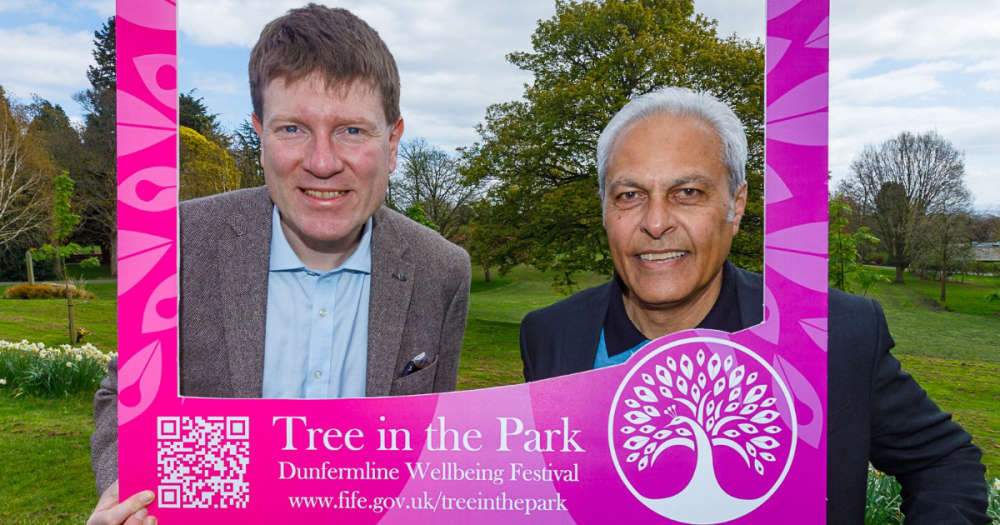
A new smaller women's prison is to be built in Scotland along with five regional units.
The 80 capacity facility is to replace Cornton Vale near Stirling, with the 20-person units dotted around the country.
Justice Secretary Michael Matheson earlier scrapped plans for a 300-capacity facility at Inverclyde.
The smaller community-based custodial units will provide accommodation as women serve out their sentence, with access to intensive support to help overcome issues such as alcohol, drugs, mental health and domestic abuse trauma. The units will be located in areas close to the communities of female offenders so that family contact can be maintained.
There will also be more use of community-based alternatives to short-term prison sentences, including restricting liberty through the increased use of electronic monitoring, combined with support in the community, and more funding will be made available for community-based services which provide robust and effective alternatives to custody.
Ministers also plan to consult shortly on proposals to further strengthen the presumption against short-term prison sentences.
The proposals have been shaped by experts from both within Scotland and across the world who visited Scotland last month to share their expertise. The proposals are to be backed by capital investment of up to £82 million, with additional annual resource costs made available to ensure women both in custody and in the community are able to access key services.
Speaking during a visit to the acclaimed 218 centre in Glasgow, Mr Matheson said:
“When I announced in January my decision not to proceed with HMP Inverclyde as a large national prison for women, I said that it did not fit with my vision of how a modern and progressive country should be addressing female offending and that we needed a bolder, more radical and ambitious approach in Scotland.
“Following a period of intensive dialogue with our own experts in Scotland as well as international experts from across the world, I’m pleased to announce a new approach to how we deal with female offenders.
“These are progressive proposals, they draw on the best available international evidence of what works, but they are tailored to specific circumstances here in Scotland.
“I’ve seen various justice policies labelled as ‘soft’ or ‘tough’ in recent years, but I think the time is right to move away from this kind of narrative – what we are doing here is taking a ‘smart’ approach, just as we’ve seen in our strategy for reducing youth offending which has proven so successful.
“What is important is doing the right thing for Scotland and our communities, based firmly on the evidence of what works in reducing reoffending. That is what we are implementing here.
“Simply locking women up in a large facility doesn’t work. We’ve seen the damaging impact that going in and out of prison has for the women, for their families and for their communities.
“What we need is a new approach. We need to continue to transform and improve services for women so that we can help them to break the cycle of reoffending.
“I believe that accomodating female offenders, where appropriate, in smaller units, close to their families, with targeted support to address the underlying issues such as alcohol, drugs, mental health or domestic abuse trauma is the way ahead.
“It is also in line with previous expert reports by Dame Elish Angiolini and Henry McLeish in which it is recommended that we should target the use of prison where it can be most effective – in punishing serious crime and protecting the public.
“The Scottish Government is determined to reduce the number of women and men serving custodial sentences and we will work closely with local partners to test the most effective ways of reducing the use of remand and short-term sentences.
“It is totally unacceptable that Scotland has the second highest female prison population in Northern Europe, doubling between 2002 and 2012.
“I believe the ambitious vision we are announcing for the future in Scotland offers the best potential to turn around the growth we have seen over the past decade in the female prison population. It offers progressive and effective alternatives to custody which are based on evidence and I believe it will further reduce rates of reoffending right across the country.”
John Scott QC, convenor Howard League for Penal Reform in Scotland said: “Howard League Scotland welcomed the Cabinet Secretary for Justice’s decision not to proceed with plans to build HMP Inverclyde. His decision was another step towards meeting the recommendations in the 2012 report of the Commission on Women Offenders which was clear that most women in prison in Scotland today do not need to be there for reasons of public safety and that their needs would be better met in the community.
“Since the Cabinet Secretary’s announcement in January, the Government has recognised that more needs to be done to reduce the size of the female prison population in Scotland and we welcome their efforts.
“The emphasis must be on preventing women from becoming caught up in the criminal justice system in the first place, diverting them at the point of arrest and prosecution wherever possible, and reducing the use of remand and short term prison sentences. There must too be sustainable funding for community-based services and there are lessons to be learned from the success of work with young offenders and the reduction in numbers at Polmont.
“If we redouble our efforts and take a ‘whole systems approach’, there is no reason why the success in reducing the number of young people in custody cannot be replicated for women in custody in Scotland.”
Sharon Stirrat, Director of Operations West, Sacro said: “Sacro welcomes the Scottish Government's plans to address the problems associated with female offending and incarceration, as well as the wider measures aimed at reducing the prison population. Sacro supports the use of credible alternatives to imprisonment for women, many of whom present with multiple and complex issues. The strong focus on recovery, improved partnership working and the investment in community-based services offer an encouraging way forward.”
Martin Cawley, Chief Executive for Turning Point Scotland said: “We are delighted to welcome the Justice Secretary to Turning Point Scotland 218 today.
“Any plan to focus on the underlying issues of offending is to be welcomed.
“Community based alternatives to custody, like our 218 service, support women to make positive long lasting change in their lives. By provided a structured environment, in an area they are familiar with will help them to tackle the issues that they have struggled with.
“We know from our experience that many of the women using 218 have a range of complex needs such as addiction, poor mental health or physical health and trauma. By addressing these, it reduces the likelihood of them reoffending in the future.”


 Closures on A92 from TONIGHT for roadworks
Closures on A92 from TONIGHT for roadworks
 Queensferry Crossing diversion trial a success
Queensferry Crossing diversion trial a success
 ‘Tree in the Park’ festival promotes wellbeing in Dunfermline
‘Tree in the Park’ festival promotes wellbeing in Dunfermline
 11°C
11°C
 14°C
14°C